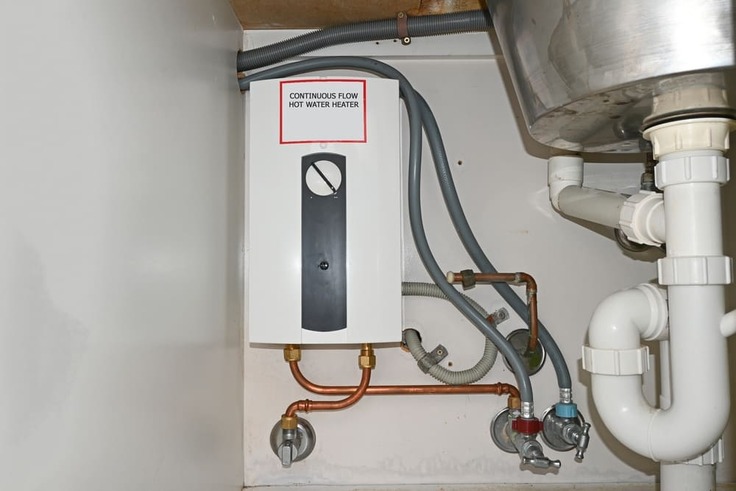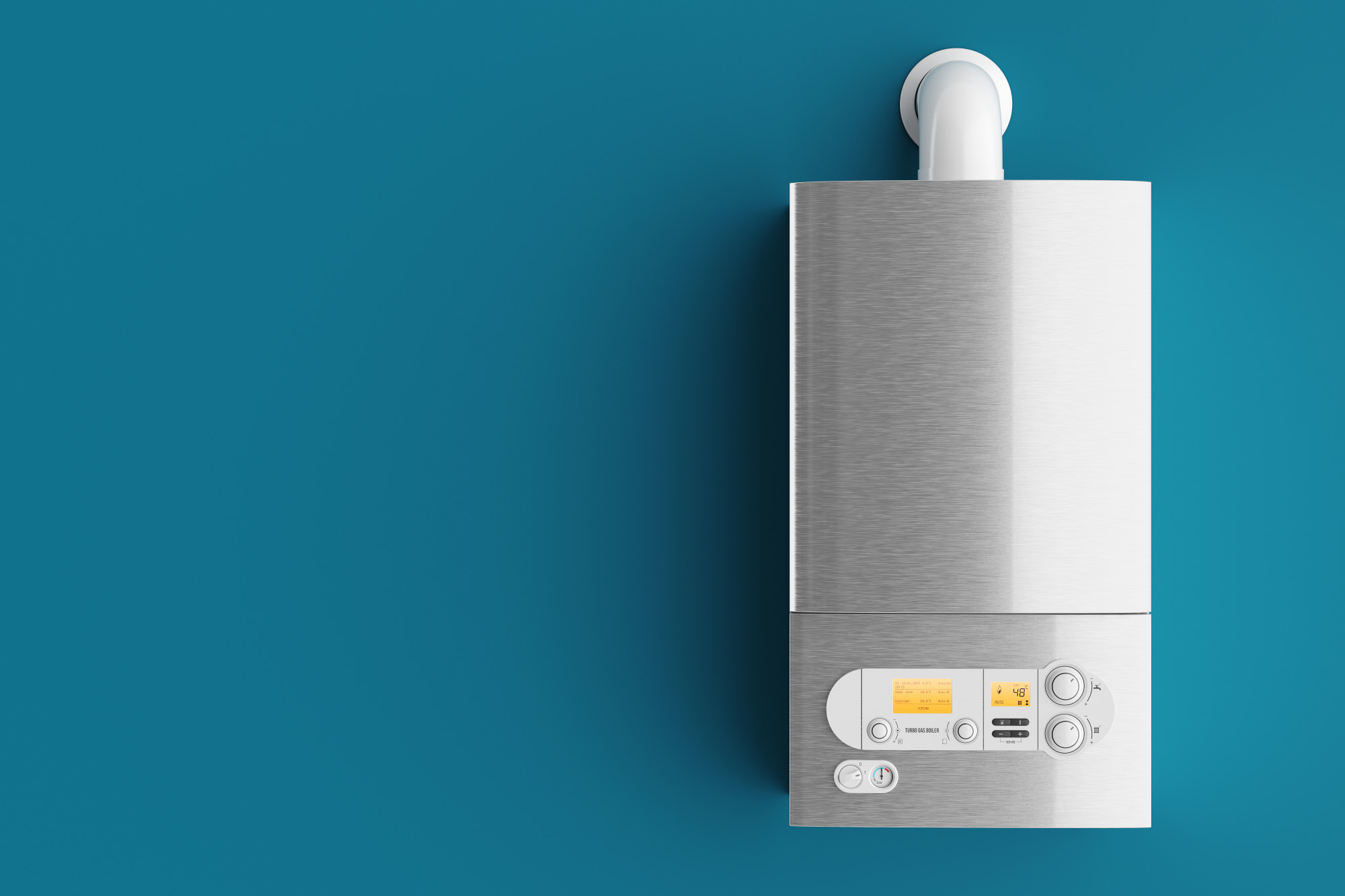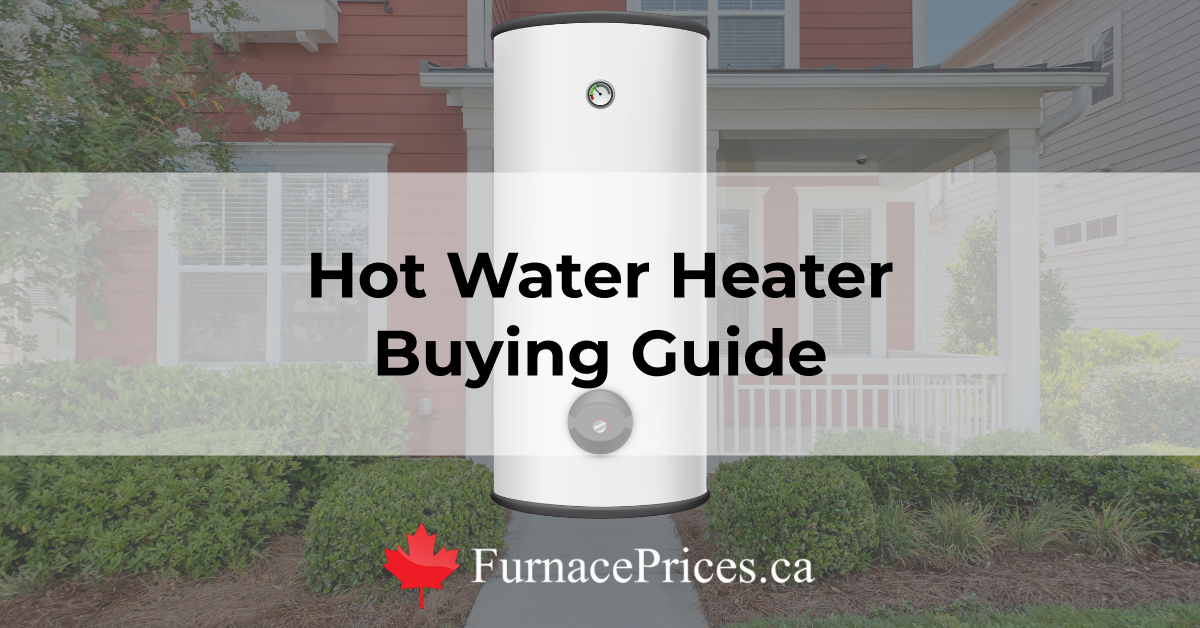
So you’ve upgraded from a tank-type water heater and moved to a tankless one. This should be a game changing experience: finally, all the hot water you want, without needing to constantly heat it (and waste so much money maintaining a tank of hot water).
But as the water is flowing, you may find that the water heater you installed isn’t exactly what you hoped it would be. Yes, it’s true: tankless water heaters sometimes need repair work. Fortunately, a lot of the problems are easy to solve on your own without needing to call a repair person. Here are some of the biggest problems that we see regarding tankless water heater repair and plumbing problems.
Note that this article is for informational purposes only, and you should consult a professional before attempting any repairs.
Why is my tankless water heater not heating my water?
Cold water. This is by far the number one problem that comes up in regards to tankless hot water heaters (and tank hot water heaters, too). You’re just not getting all the hot water out of them that you want to.
The first thing know is that you will get only cold water for a short time before the hot water reaches you. The pipe between the water heater and you is filled with cold water when you turn on the water heater, and it takes a short tie before the hot water gets to you.
Otherwise, there could be several problems at play here. The first, and the most common, is that demand is running too high for supply. If you’ve got three people in the house taking showers, and the dishwasher is running and the clothes washer is running, then odds are good that your water heater just can’t keep up.
The Solution: There are a few solutions here, and they boil down to supply and demand. Either you need to make sure that not everyone is using the hot water heater at the same time, or you need to upgrade. You can upgrade by switching to a tankless water heater with a higher capacity, or you could add a second unit, either in parallel with the main one or elsewhere, to serve one or more of the places you use hot water.
When it comes to tankless water heater installation, adding a parallel second unit isn’t an elaborate fix and can be done in just a few hours by the technician. (Or you could get the second tankless water heater installed by yourself if you’re good at plumbing services.)
The best thing is that, while paying for a second water heater may seem like a large cost, it can save you from frustration because you won’t be short on hot water for your shower when you’re rushing to get to work.
Why is my water heater running out of hot water quickly?
Your tankless water heater may start off strong but run out of steam pretty fast. What is the reason for this? The problem may be that the inside of the water heater–yes even tankless water heaters–is full of mineral deposits. This drastically reduces the capacity the water heater can hold and properly heat.
This is especially problematic in places with hard water. The most common minerals to build up in the water heater are magnesium and calcium, which can clog pipes and faucets.
The Solution: There are a couple of solutions for cleaning hard water deposits out of tankless water heaters. The first is to check the filter to see if it’s still in good working condition. If it’s worn out or clogged, then clean or replace the filter–and that may be all you need to do to prevent it from getting worse. But the problem is getting rid of the deposits that are already inside.
Fortunately, there are products that you can buy that will descale your water heater. Whether you know if you have hard water deposits or not, it’s a safe idea to run these descaler kits through the water heater at least once a year. You may want have your tankless date heater professionally serviced on a regular basis to keep it in top operating condition.
And finally, maybe think about investing in a water softener for your system. It can prevent a lot of headaches.
Get Quotes
How soon are you looking to buy?*



Why am I getting an error on my tankless hot water heater?
There are several warnings that you can get on your tankless unit’s readout, but one that comes up frequently is that your air supply is blocked. This could either mean that you’re having trouble bringing air into the water heater, to allow for the combustion of the gas tankless water heater, or you’re having trouble venting the exhaust. Obviously, both are going to be bad.
The Solution: The first step is to inspect all of your vent pipes. Look for holes, disconnects, or blockages. If they’re blocked, evaluate if the blockage is something you can take care of yourself, or if you need a plumber to come in with repair services. For instance, if you can get up on your roof to see whether the top of the vent is blocked, you may be able to. clear an obstruction yourself.
You may find that animals have made their homes in pipes–anything from birds to wasps to mice. (This is your reminder to always make sure your vent pipes are securely covered so no animals can get in in the first place.)
But if the exhaust vent is blocked, you may want a plumber or HVAC professional to correct it; a blocked vent can cause conditions hazardous to your health.
Why is my tankless water heater not igniting?
If your tankless water heater simply isn’t heating up at all, there could be a few problems. The first one is easy: make sure that you’ve paid your gas bill and that gas is still coming to the house. (This can be done by making a call to the gas company, or by checking your furnace or a gas stove to see if they’re working.) If you have an electric water heater, you’ll probably already know that the electricity is on.
The second problem could be that the gas pressure isn’t there, possibly because you have a low propane tank (if you’re not connected to the municipal utility). But there could be more problems that aren’t so easy to diagnose, such as having an ignition system that isn’t properly functional, a regulator that isn’t working properly, or something more technical.
The Solution: If the problem is that your gas bill isn’t paid, or that the propane tank is empty, then you can take care of that fairly easily. If it’s one of the other problems, then you’ll probably need to see a technician about the problem.
Conclusion
All of the problems listed above aren’t hard to fix, but they can require a technician. And different brands sometimes require specialized help. Here are some helpful links for common water heaters:
- Rinnai tankless water heater repair
- Navien tankless water heater repair
- Bosch tankless water heater repair
Get a free quote today!
Get Quotes
How soon are you looking to buy?*












